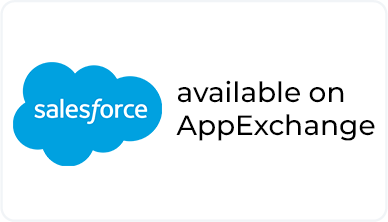
Navigating Messaging Limitations in the WhatsApp Business API with Salesforce Integration
The integration of Salesforce with the WhatsApp Business API offers a robust solution for businesses seeking to streamline their customer communication. However, to fully leverage the power of this integration, it's crucial to understand and navigate the messaging limitations inherent to the WhatsApp Business API. This blog will explore these limitations, their implications, and strategies to effectively work within them using Salesforce.
Why Messaging Limitations Exist
WhatsApp's primary objective is to ensure a high-quality, spam-free experience for its users. To maintain this standard, WhatsApp enforces certain restrictions on how businesses can utilize the API to communicate. These limitations are designed to prevent misuse, protect user privacy, and ensure messages are pertinent and timely.
Key Messaging Limitations and Solutions
Why Messaging Limitations Exist
Requirement: Outbound messages that are not responses to user-initiated interactions must use pre-approved templates.
Reason: Ensures messages are not spammy and adhere to WhatsApp’s quality standards.
Salesforce Integration Solution: Use Salesforce to manage and submit message templates for approval. Leverage Salesforce’s capabilities to ensure templates are well-crafted, compliant, and personalized.
2. 24-Hour Customer Care Window
Requirement: Businesses can respond to customer messages within a 24-hour window without using a template. After this window, only approved templates can be used.
Reason: Encourages timely customer support and prevents businesses from spamming users outside active conversations.
Salesforce Integration Solution: Utilize Salesforce to automate and expedite responses within the 24-hour window. Set up automated workflows in Salesforce to handle frequent inquiries and ensure timely follow-ups.
3. Message Rate Limits
Requirement: There are tiered rate limits on the number of messages a business can send per day, based on the quality and volume of customer interactions.
Reason: Prevents platform abuse and ensures scalability based on user engagement.
Salesforce Integration Solution: Use Salesforce analytics to monitor message performance and engagement. Focus on high-quality interactions to improve your rate limit tier. Salesforce can help segment audiences to ensure targeted and meaningful conversations.
4. Opt-In Requirement
Requirement: Businesses must obtain explicit opt-in from users before sending messages.
Reason: Protects user privacy and ensures users receive only desired messages.
Salesforce Integration Solution: Integrate Salesforce with your customer opt-in processes. Collect opt-ins through various channels like websites, apps, and offline interactions, all tracked within Salesforce. Clearly communicate the benefits of opting in through personalized Salesforce campaigns.
5. Content Restrictions
Requirement: Certain types of content, such as promotional messages, are restricted or require careful wording within templates.
Reason: Maintains the integrity and quality of interactions on the platform.
Salesforce Integration Solution: Ensure your message content adheres to WhatsApp's policies by utilizing Salesforce's content management capabilities. Create, review, and approve message content within Salesforce before submission to WhatsApp.
Strategies to Maximize the Integration
- Personalization: Use Salesforce to personalize messages by leveraging customer data. Use dynamic fields in WhatsApp templates to make messages relevant and engaging.
- Automation: Implement Salesforce's automation tools to handle routine inquiries and ensure timely responses, freeing up human agents for more complex interactions.
- Analytics: Regularly analyze message performance using Salesforce's analytics tools. Refine communication strategies based on engagement metrics.
- Feedback Loops: Use Salesforce to collect and analyze customer feedback, continuously improving your messaging and service quality.
- Feedback Loops: Use Salesforce to collect and analyze customer feedback, continuously improving your messaging and service quality.
Conclusion
Integrating Salesforce with the WhatsApp Business API offers a powerful communication platform for businesses. However, understanding and adhering to messaging limitations is crucial. These constraints, while challenging, ensure a positive user experience, prevent spam, and maintain the platform's integrity.
By leveraging Salesforce's robust capabilities, businesses can navigate these limitations effectively. Embrace these constraints not as barriers but as opportunities to refine your communication strategy. With Salesforce WhatsApp integration, businesses can ensure every message adds value and fosters trust with their audience, creating a more meaningful and effective customer communication experience.
Level up WhatsApp Integration with Salesforce
Start with a 30 day trial for you to taste the CRM + WhatsApp interactions!



